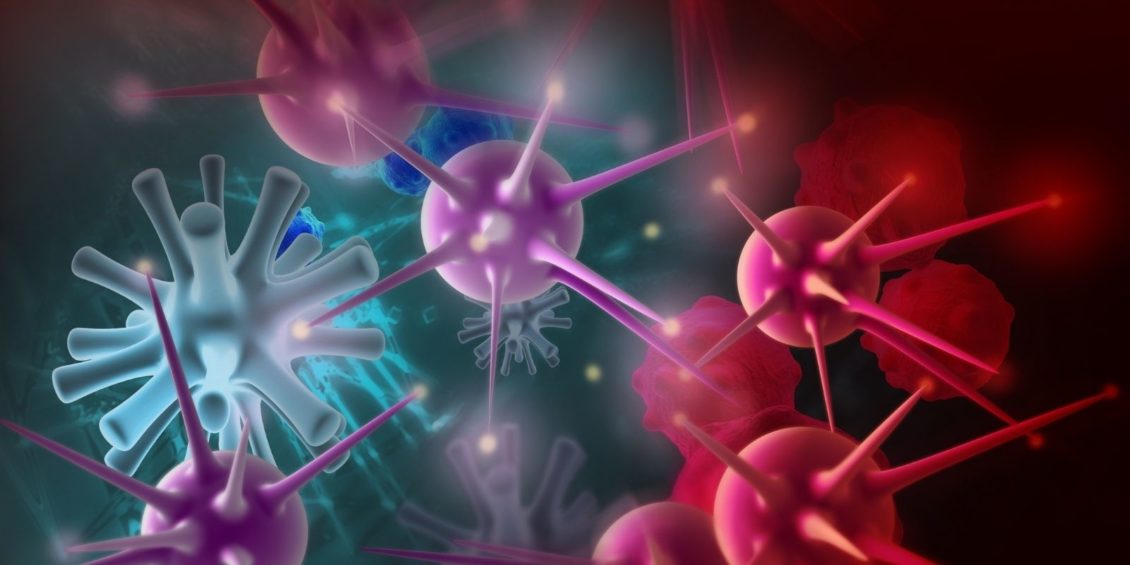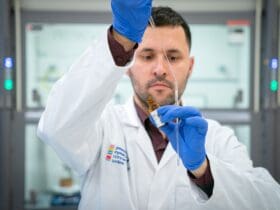The first-ever coordinated Cancer Research Strategy for Wales (CReSt), which will bring together the whole research community in the fight against cancer, will be published later today (July 6th).
The strategy has been developed by Health and Care Research Wales, the Wales Cancer Network and the Wales Cancer Research Centre, as well as groups across Wales who want to improve cancer diagnosis and treatment, including patients, members of the public and cancer researchers. Importantly, it also builds on key strategic advice received from a panel of external experts.
Its delivery will be co-ordinated by the Wales Cancer Research Centre, which is funded by Welsh Government through Health and Care Research Wales.
The strategy focuses on six priority research themes where there is already a track record of excellence in Wales that can be developed further to be internationally leading:
- Precision and mechanistic oncology – looking at how genetics can affect who gets cancer, how that cancer behaves, and finding ways to treat cancers with particular genetic ‘signatures’
- Immuno-oncology – understanding how our bodies’ immune responses change when cancer develops, and finding ways to use the immune system to help fight cancer
- Radiotherapy – exploring how radiotherapy can kill cancer cells while limiting the impact on the rest of the body
- Cancer clinical trials – bringing promising new treatments to patients in trials and testing new ways of giving existing treatments
- Palliative and supportive oncology – finding the best ways to look after patients with cancer, such as pain control, side effect management and mental health support
Population health-based cancer prevention, early diagnosis, primary care and health services research – finding new ways to prevent cancer and detect it early, and making sure that health services in Wales are underpinned by strong science.
Eluned Morgan MS, Minister for Health and Social Services said:
“Professor Kieran Walshe, Director of Health and Care Research Wales, said:
“Research plays an integral role in the fight against cancer in Wales. From the clinicians and lab technicians to supporting staff and members of the public who take part in studies, there is a large and thriving community dedicated to improving the lives of people across the nation.
“The new Cancer Research Strategy is a crucial step forward for Wales and we are proud to support its development and implementation. The key recommendations outlined will help us work together on life-saving research, reinforcing our commitment to providing the best possible standard of cancer care to people in Wales.”
I welcome this strategy which will help us tackle cancer in Wales through the development of collaborative and focussed research.
Tackling cancer can only be done by working in partnership and it is heartening to see so many partners involved in the creation of this strategy led from within the research community.”
Julie Hepburn, 68, from Newport, was diagnosed with stage 3b colorectal cancer in 2014. After emergency surgery and chemotherapy she went into remission. She now works with the WCRC as its lead lay research partner, helping to shape CReSt from the very beginning.
Julie said: “Being diagnosed with cancer was a huge shock – I never expected it. After going through the gruelling treatment process and seeing how hard doctors and clinicians work to keep patients alive, I wanted to help to make things better for future cancer patients.
“That’s how I made my first steps into public involvement for cancer research. As lay people we do a very valuable job by offering a different perspective to researchers and speaking up for patients.
“I was delighted to be involved with the development of CReSt. It is such an important piece of work and I really feel as if my input was listened to. We all want to make cancer research sustainable in Wales and we’ve got to have a plan. CReSt is a way forward, something we can all work towards, and I believe it will be of great benefit to the people of Wales.”
Professor Tom Crosby, National Cancer Clinical Director for Wales, said:
“We know that participation in clinical research is one of the best measures of service quality and that patient outcomes are improved in research rich environments. There has never been a more important time to research and innovate, to help reset and redesign a better system of cancer care.”
Professor Mererid Evans, Director of the Wales Cancer Research Centre, said:
“We can achieve so much by working together. Our goal is to unite those involved in cancer research in Wales so that we can deliver real progress. This will pave the way for further trailblazing studies and trials, important collaborations with industry and academia, and more equitable access to trials. Above all, we will not lose sight of who we are working for – patients and the public across Wales and beyond.”









Leave a Reply
View Comments